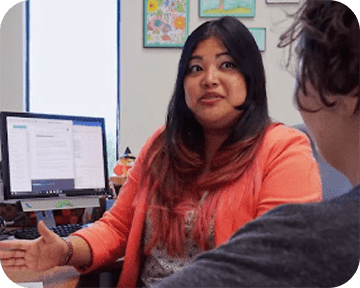for professors
“I’m not suggesting that all students on the spectrum need accommodations in college or need additional services. I don’t want to generalize…but for those who do have those needs, which is many students, they should absolutely get the ball rolling.”
—Dr. Eric Einlich, Ph.D.
for professors
“I’m not suggesting that all students on the spectrum need accommodations in college or need additional services. I don’t want to generalize…but for those who do have those needs, which is many students, they should absolutely get the ball rolling.”
—Dr. Eric Einlich, Ph.D.
“How do we address students that have extra needs…without taking away from the rest of the class? I’ve had times where I don’t know how to handle it…I’m just not trained for it.”
—Professor Aubry Mintz
“How do we address students that have extra needs…without taking away from the rest of the class? I’ve had times where I don’t know how to handle it…I’m just not trained for it.”
—Professor Aubry Mintz
“Some autistic students are extroverted and have lots of friends, and some are pretty good with executive function and can manage their schoolwork independently. So you can’t just assume one blanket approach for all students.”
“Some autistic students are extroverted and have lots of friends, and some are pretty good with executive function and can manage their schoolwork independently. So you can’t just assume one blanket approach for all students.”
—Dr. Eric Einlich, Ph.D.
—Dr. Eric Einlich, Ph.D.









